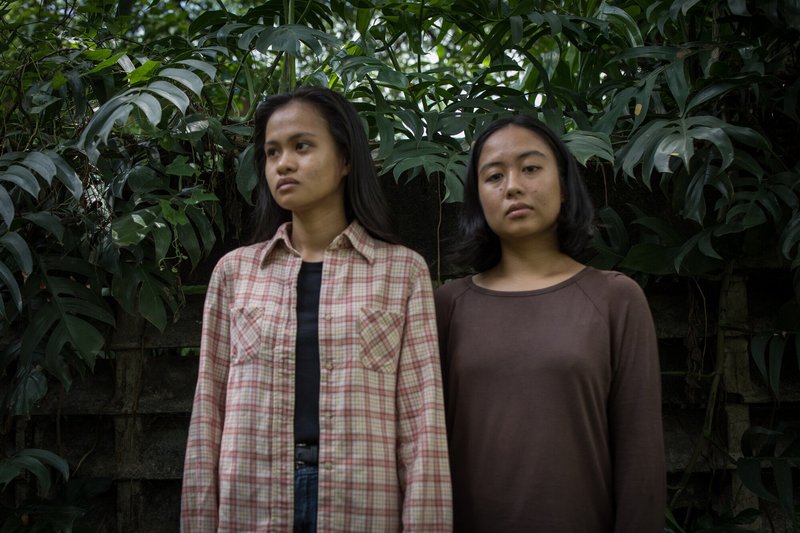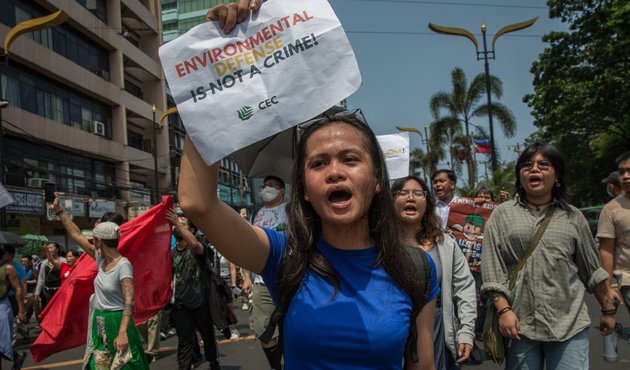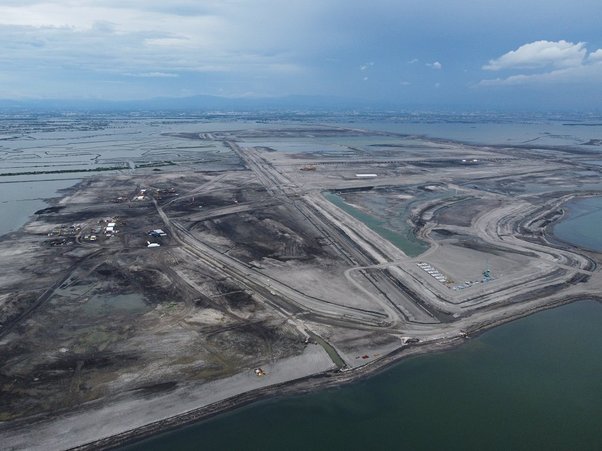The shift away from fossil fuels needs to be a just transition not only for workers, but also for people living near mining sites
The EU’s urgent shift away from fossil fuels needs to be a just one not only for workers in Europe’s energy sector, but also for the people living near the mineral deposits that need to be mined to produce renewables.
The EU – like the rest of the major industrialised economies – has left the transition to clean energy dangerously late in the game, with extreme flooding, severe storms and heatwaves the new normal in a changing climate.
It is now scrabbling around to secure urgent supplies of metals needed to build wind turbines, electric vehicles and solar panels.
However, the faster the pits are dug, the less time there is to ensure buy-in from local communities, and the potential for conflict increases.
This both threatens the lives and livelihoods of people living in these areas and will undermine Europe’s security of supply as operations and transport are interrupted and suspended.
Violence and forced disappearances linked to mining
Unrest and violence around mining sites isn’t a theoretical concern – it is happening now.
Last month, my organisation, Global Witness, documented 334 incidents of violence or protest between 2021 and 2023 linked to mining copper, cobalt, lithium and nickel in the 10 countries producing the majority of these raw materials needed for the energy transition.
The problem is particularly acute in countries like the Philippines, which the EU is looking to source from.
The Filipino government is pushing for rapid expansion of nickel, cobalt and copper, and new research shows that a fifth of the country’s landmass is earmarked for mining.
A quarter of this land clashes with key biodiversity and protected areas, and much of it threatens Indigenous communities.
Once developed, mines in the Philippines are often secured by force. Armed military and paramilitary units are mandated to protect state resources, working closely with mining companies.

Since 2012, the Philippines has been ranked as the deadliest country in Asia for people protecting land and the environment, with mining linked to a third of all killings.
Killings are not the only tool of oppression in the military’s arsenal of tactics to silence and eliminate opposition from communities which are displaced and affected by major infrastructure projects.
In September 2023, two women activists – Jhed Tomano (22) and Jonila Castro (23) – were violently abducted, according to eyewitnesses, after visiting communities affected by ongoing reclamation activities as part of the construction of a huge airport in Manila Bay.
After 17 days missing, they were resurfaced at a military-organised public press conference, where they claimed state involvement in their abduction.
A Court of Appeal decision in August 2024 placed the activists at increased risk, after denying their request for a protection order that would have prevented members of the Philippine Army, their alleged attackers, from going within 1km of their place of work or homes, and prevented further criminalisation.
The two women now face the charges of grave oral defamation and if found guilty could face between six months to two years in prison.
Ensuring a just transition for mining communities
Between 2021 and 2028, copper mining is estimated to increase by over 25%, cobalt over 100%, lithium over 300% and nickel over 75%.
As global demand for transition minerals rockets, the EU must show leadership by ensuring its minerals are sourced to high environmental and human rights standards.
Its growing list of Just Energy Transition Partnerships should be screened against international ESG aims and the recommendations of the UN’s Secretariat General panel on transition minerals, and exclude projects which fall foul of these criteria.
Any mining projects which the EU either funds or facilitates private funding for should be obliged to meet the highest international standards, with companies being obliged to become members of the International Responsible Mining Assurance.
Meanwhile, the EU can seize the opportunity to build strong sustainability standards into trade deals which cover transition minerals – such as in ongoing negotiations with the Philippines – and must rethink any rollback of laws like the Corporate Sustainability Due Diligence Directive, which includes strong provisions to make sure communities nearby to mining sites are consulted properly.
Only by doing this can we make sure that we can guarantee both security of supply for the energy transition, and protect the rights and livelihoods of the people who stand to be affected.



